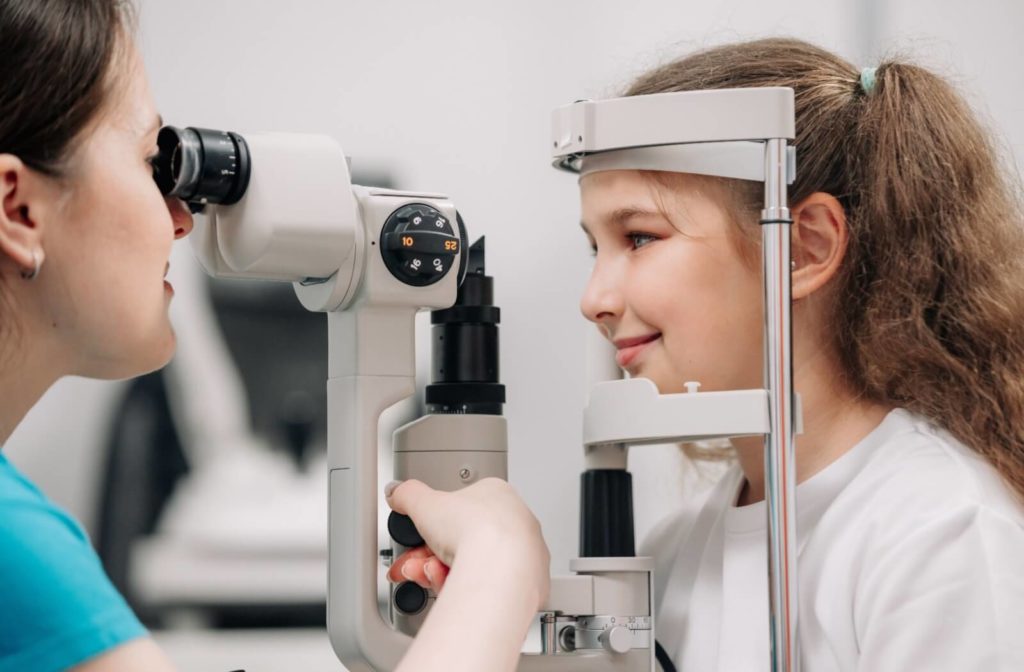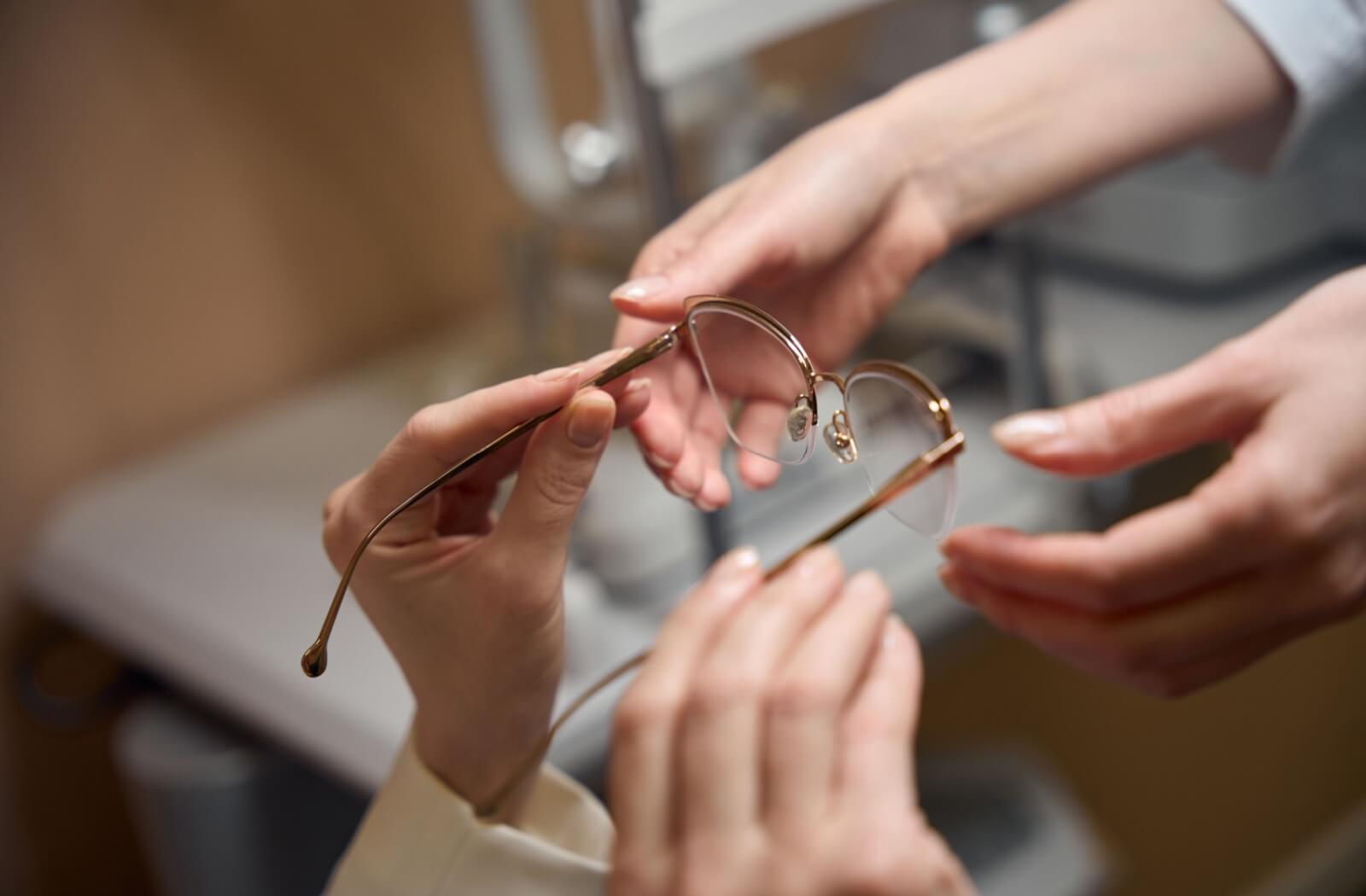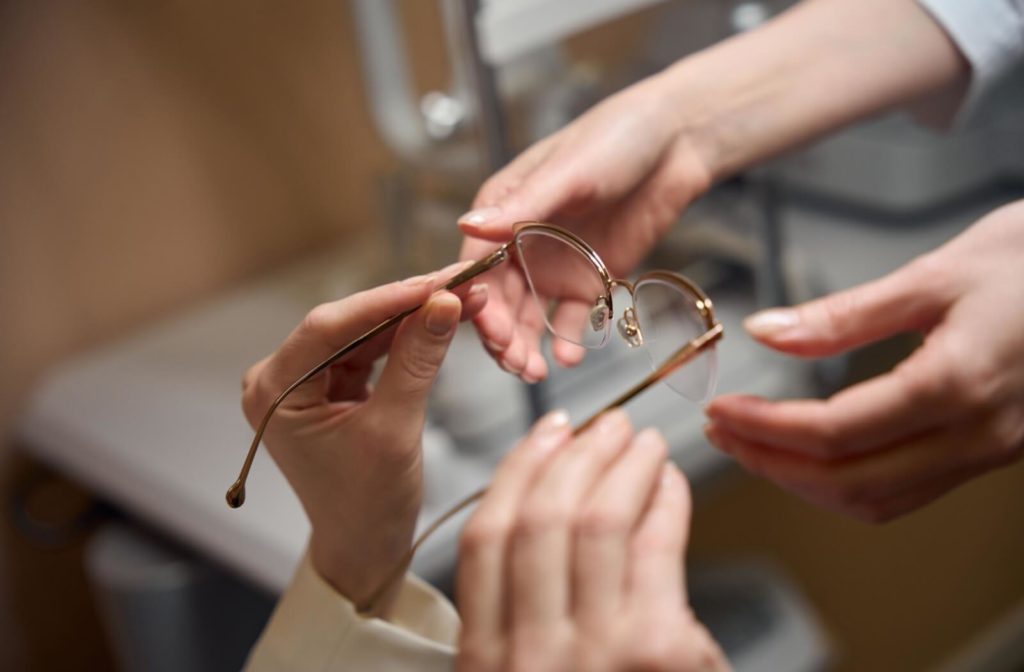Taking care of your eyes is one of the most important steps you can take for your overall health. But how often do you really need to see your optometrist? Adults should get an eye exam every 1-2 years, while children, seniors, and those with specific eye conditions should schedule yearly check-ups or as recommended by their optometrist. Regular eye exams make sure your vision stays sharp, detect potential problems early, and safeguard your overall well-being. If you’re unsure about your next visit, check out our comprehensive eye exam services or learn more about the importance of early eye disease detection.
Why Eye Exams Are Essential for Everyone
Your eyes are not just the window to the world; they’re also a key indicator of your general health. Many eye diseases, such as glaucoma, cataracts, or macular degeneration, often develop slowly and without symptoms. Regular eye exams allow your optometrist to catch these issues early and offer treatment options to protect your vision.
Additionally, eye exams can reveal other underlying health conditions. For example, your optometrist can spot early signs of diabetes, hypertension, or high cholesterol during a routine examination. Eye care is about more than just vision correction—it’s a proactive measure for maintaining overall health.
How Often Should Children Have Their Eyes Examined?
Children rely heavily on their vision for learning and development. Poor eyesight can affect their school performance, motor skills, and confidence. It’s recommended that children have their first eye exam at 6 months. After that, children should have an eye exam annually to monitor their eye health and visual development.
Children may not always communicate their vision struggles, so regular exams help confirm any refractive errors (like nearsightedness or farsightedness) or eye conditions are detected early. Corrective measures, such as eyeglasses, can make a world of difference in a child’s academic success and daily life.

How Often Should Adults Have Their Eyes Examined?
For adults aged 19 to 64, a yearly eye exam is typically recommended, even if there are no pre-existing vision problems or eye conditions. If you wear glasses or contact lenses, annual exams help ensure your prescription remains accurate and your eye health is closely monitored.
As an adult, life can get busy, and it’s easy to postpone health appointments. However, prioritizing regular eye exams is essential, as changes in vision can occur gradually. Blurry vision, eye strain, or frequent headaches may indicate that your current prescription needs updating.
Eye Exams for Seniors: How Often Is Necessary?
Eye health becomes even more important as we age. For seniors over the age of 65, annual eye exams are strongly recommended. Age-related eye diseases like cataracts, macular degeneration, and glaucoma become more prevalent in this age group. Regular check-ups can help detect these conditions early, allowing for prompt treatment and management.
Maintaining healthy vision is key to a high quality of life in your senior years. Poor vision increases the risk of falls, accidents, and difficulty with daily tasks like reading or driving. By staying on top of your eye care, you can maintain independence and visual clarity well into your golden years.
High-Risk Groups: Who Needs More Frequent Eye Exams?
Some individuals need to visit their optometrist more frequently due to their eye health or overall medical history. You may fall into a high-risk group if:
- You have diabetes or a family history of eye diseases like glaucoma.
- You wear contact lenses or have had eye surgery.
- You experience sudden changes in vision, eye pain, or floaters.
- You have high blood pressure or other systemic health issues.
- You have high myopia (>-5.00).
For individuals in these categories, yearly or more frequent eye exams are essential to detect and manage any changes in eye health.
What to Expect During an Eye Exam
If it’s been a while since your last visit, you may be wondering what happens during an eye exam. Your optometrist will check your vision, assess your eye health, and look for signs of eye diseases. Common steps include:
- Visual acuity test – Measures how clearly you can see letters or images at various distances.
- Refraction test – Determines if you need prescription lenses or an updated prescription.
- Eye pressure test – Screens for glaucoma by measuring the pressure inside your eyes.
- Retinal examination – Allows your optometrist to examine the health of your retina and optic nerve.
- OCT scan – Provides detailed cross-sectional images of the retina to detect early signs of eye diseases.
- Pachymetry – Measures the thickness of the cornea, which is important for glaucoma risk assessment.
- Eye muscle function test – Evaluates the coordination and function of the muscles controlling eye movement.
- Dilation – Uses eye drops to widen the pupils for a more comprehensive examination of the retina and optic nerve.
Modern technology has made eye exams more comfortable, efficient, and comprehensive than ever before.
The Bottom Line: Stay Proactive About Eye Health
Whether you’re young, an adult, or a senior, regular eye exams play a crucial role in protecting your vision and overall health. Skipping an eye appointment may seem harmless, but catching eye diseases or changes in vision early can make all the difference.
Here’s a quick recap of how often you should schedule eye exams:
- Infants & Toddlers: 6 months and every year after.
- Children (6-18): Every year.
- Adults (19-64): Every year.
- Seniors (65+): Every year.
- High-Risk Individuals: Every year or as recommended.
If it’s been a while since your last eye exam, there’s no better time than now to book an appointment.
Take Charge of Your Vision Today
Your vision is priceless—don’t wait to take care of it. Contact Yonge Eyes Optometry to book your next appointment and take the first step toward better eye health. Whether it’s your child’s first check-up, an updated prescription, or managing an eye condition, we’re committed to providing personalized and professional eye care for the entire family.



